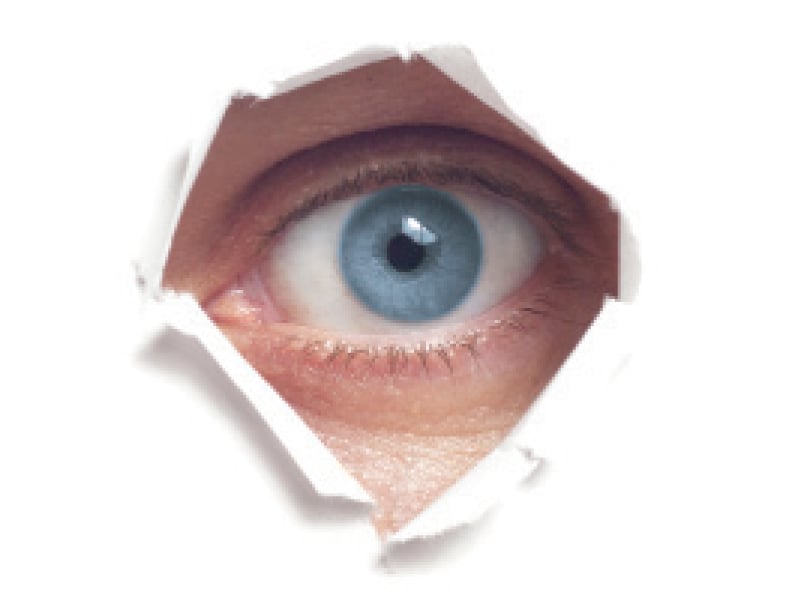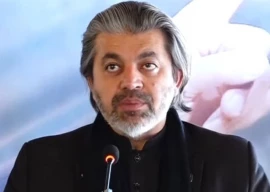
Each new pestering construction project, be it an underpass or a major avenue, is justified by the government on the grounds of it serving the public good. Yet as main roads, intersections, pedestrian bridges, railway stations, airports and other places of the city remain inaccessible for visually impaired citizens, it appears that the government has no second thoughts about turning a blind eye to the special infrastructural needs of a significant portion of the public.
In most countries of the world, tactile tiles and audio systems are installed for facilitating the mobility of visually impaired citizens, allowing them to not only cross the roads easily, but also board buses, planes and trains.
According to Dr Shah Nawaz Munami, an ophthalmologist, about two million people are suffering from blindness in Pakistan. Conversely, the Department of Rehabilitation and Empowerment of Special Persons of Sindh (DPED) has claimed that 356,445 people in Sindh may be visually impaired.
"Yet there are no special facilities for the blind in government institutions, airports, railway stations or highways, nor are there any specific road signs in this regard," said the President of the Pakistan Association of Blind, Muzaffar Ali Qureshi.
"Road designers have only taken into account the drivers while designing the roads in Karachi since there are no special facilities for pedestrians, especially the visually impaired and differently-abled. In principle, when designing a road, the planner should keep in mind the most vulnerable citizen. Unfortunately, our planners overlook the unique problems of different groups in the city," opined Syed Ameer Hussain, Project Coordinator at the Department of Urban Infrastructure and Engineering at NED University.
Hussain further believed that there were no elevators or ramps constructed for the differently-abled and the blind on the pedestrian bridges, while pelican crossings, which are meant for pedestrians including the blind, were also missing. "Moreover, due to encroachments on the footpaths, the visually impaired are forced to walk on the road, which poses a serious threat to their lives. Not everyone can climb a 25-foot high pedestrian bridge," said Hussain, who implored the government to ensure zebra and pelican crossings on roads.
According to a survey conducted by The Express Tribune, there are no pelican crossings installed anywhere in the city for helping the visually impaired and differently-abled pedestrians to cross the road. In the 1980s, these crossings were installed near the Aga Khan University Hospital (AKUH) and Baitul Mukarram Mosque however, they became obsolete years ago due to lack of maintenance. Furthermore, Tactical Ground Surface Indicators (TGSI) and Audio Tactical Traffic Signals (ATTS), which are installed in most countries of the world for visually impaired people, are also lacking in Karachi, with the TGSI installed only at the Orange Line and Green Line and the ATTS not installed anywhere in the city.
Ali Sohail Siddiqui, a civil engineer associated with a highway construction company, explained that tactile paving was used on the roads or footpaths for the convenience of the visually impaired people the world over. "This is a special type of floor, with raised lines, domes or other visual features to convey safety information to people who are visually impaired or have low vision. Large domes or lines are used as stop signs, while thin lines indicate that the road is safe to walk on. In most areas of the country, including Karachi, highways and roads, government offices or transportation systems including airports, bus stops and railway stations do not have these facilities due to which blind people have difficulty in traveling," noted Siddiqui.
Officials of the Pakistan Airports Authority (PAA) claimed that special facilities for visually impaired people were offered by the respective airlines while the spokespersons of Pakistan Railways and the Transport and Mass Transit Department assured that measures were being taken to facilitate the travel of visually impaired in the city.




1733102329-0/Wayne-Northrop-(1)1733102329-0-165x106.webp)













COMMENTS
Comments are moderated and generally will be posted if they are on-topic and not abusive.
For more information, please see our Comments FAQ